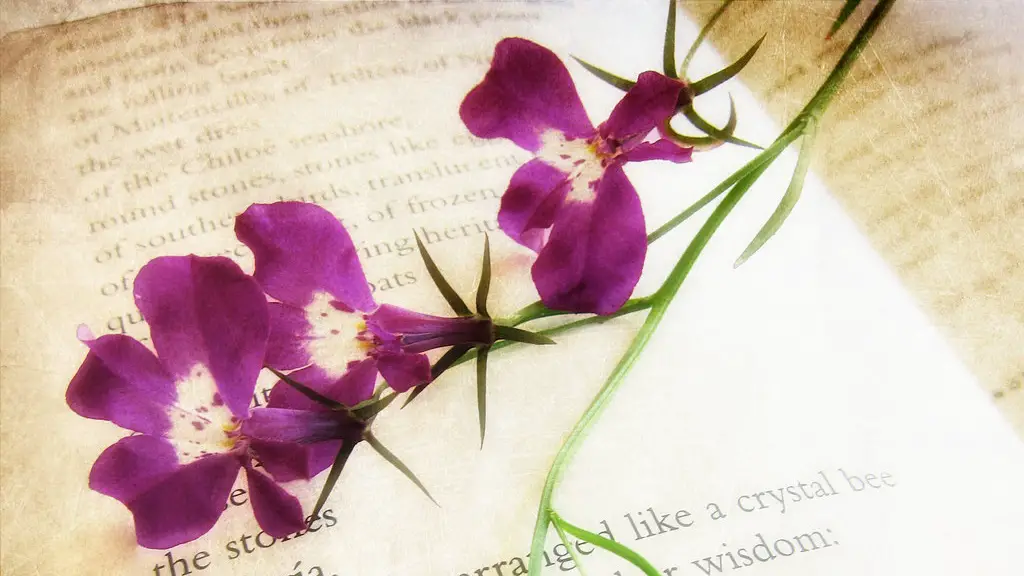A Song of Myself by Walt Whitman
A Song of Myself is a classic work by Walt Whitman, who was an American poet, essayist, and journalist. It was originally published in Leaves of Grass in 1855 and is one of the most widely known and read poems in the English language.
The poem is written in a lyrical style and is notable for its celebration of the human spirit. It expresses a deep appreciation for life, love, and the universe, and celebrates the beauty of nature. The poem has been widely praised for its vivid imagery, expressive language, and philosophical musings.
The poem is the first piece of Whitman’s “song of myself,” and serves as an introduction to the poet. It is a celebration of the human condition, with Whitman praising the individual for their capacity for self-reflection and introspection. He argues that, by understanding oneself, one can come to understand others and to embrace life as a whole.
Whitman’s writing is often noted for its innovative use of language and imaginative metaphors. In “A Song of Myself” he uses vivid imagery to explore the profound and mysterious nature of life, including the notion of mortality. The poem is an ode to the human potential, encouraging one to seek out and explore their own spiritual truths.
There are also themes of unity throughout the poem, as Whitman celebrates the interactions between all living beings. He reflects that all of us share the same feelings of joy, suffering, and mortality, and he encourages us to embrace these shared experiences with an open heart.
Whitman’s poem is one of the most influential American works of poetry and has stood the test of time. It is widely admired and studied by scholars, poets, and general readers alike, and continues to be an inspiration for generations of readers.
The Concept of Death
One of the main themes of A Song of Myself is the concept of death. While the poem celebrates life, Whitman acknowledges the inevitability of death and uses the theme of mortality to emphasize the importance of living fully and deeply. He expresses that life is fleeting and that death can come unexpectedly, so it is important to make the most of the time we have.
The poem also posits that death is not something to be feared but instead should be accepted as a natural part of life. Whitman encourages readers to accept the mystery of death and find comfort in the fact that death is part of a larger cycle of life. He argues that death does not mean the end of an individual, but rather a transformation into something else.
Finally, Whitman asserts that death should be embraced as an opportunity to explore the mysteries of life and transcend the human condition. He argues that death is a way to discover our true selves, and reveals a deep respect for the process of finding spiritual truths through the acceptance of mortality.
The Meaning of Life
In A Song of Myself, Whitman seeks to answer the age-old question of “what is the meaning of life?”. He uses the poem to explore the concept of life and its purpose, urging readers to reflect on their own individual paths. He suggests that the answer to this question cannot be found in any one source, but must be discovered through personal exploration.
The poem presents an optimistic outlook, with Whitman emphasising the importance of living passionately and taking responsibility for one’s actions. He encourages readers to create their own paths and to pursue their own personal goals. He argues that life is too short to waste in regret for past mistakes, and encourages readers to focus on looking forward and living life to the fullest.
The poem presents the notion that life is a journey, and that one should never feel discouraged by any difficulties. Whitman encourages readers to celebrate the beauty and mystery of life, and to constantly strive to create a better world for everyone.
The Human Potential
The poem is a celebration of the human potential, with Whitman praising the individual and their capacity for self-reflection and introspection. He speaks of understanding oneself as a pathway to understanding others. He argues that by embracing our individual abilities and our collective strengths, we can work together to create a more fulfilling existence.
The poem also celebrates the power of creativity and imagination. Whitman believes that anything can be achieved by those who hold faith in their own talents, and encourages readers to strive for their own greatness. He argues that by unlocking our own potential and allowing ourselves to dream, we can open up a world of possibility for ourselves and for others.
The poem argues that by uniting our individual strengths in pursuit of a single goal, we can make positive changes in our own lives and in the lives of those around us. Whitman speaks of each and every one of us having a part to play in the collective effort, and urges readers to embrace their power to create a better future for all.
The Power of Language
The poem is notable for its innovative use of language and vivid imagery, which have been praised by critics and readers alike. Whitman strives to express the profound and mysterious nature of life, and uses expressive language to create mesmerising images that draw the reader in. He argues that language is key in understanding the world and in discovering our own inner truths.
The poem emphasises the power of language to share ideas and experiences, and presents communication as a key part of the human experience. It encourages readers to find their voice and to speak up in the face of adversity. Whitman argues that by expressing our true selves and our individual stories, we can better understand one another and open up a world of possibility.
Finally, the poem celebrates the versatility and beauty of language, and encourages readers to appreciate its magic. Whitman argues that language is invaluable in understanding the world and in connecting with others. He encourages readers to reflect on their own power to create, and meditate on how their words may be able to shape their own destinies.
The Power of Nature
A Song of Myself celebrates the beauty of nature, with Whitman using vivid imagery to explore the expansive universe. He encourages readers to appreciate the grandeur of the natural world and to explore its many wonders. The poem speaks of the importance of nature and the need to treat it with respect.
The poem asserts that nature offers us comfort and peace, and encourages readers to embrace its healing powers. Whitman speaks of nature’s ability to offer solace and perspective, and urges readers to take time to appreciate its beauty and mystery. He argues that by connecting with nature and its energy, we can discover our true selves and find meaning in life.
The poem speaks of the importance of respecting nature and of protecting the environment. Whitman urges readers to take heed of the fragility of the natural world and to be mindful of the consequences of their actions. He speaks of our duty to care for the environment and to ensure that future generations can enjoy its splendour.
Conclusion
A Song of Myself is an iconic piece of American literature and has been widely praised by critics and readers alike. Its celebration of the human spirit and its vivid imagery have inspired generations of readers. The poem is notable for its exploration of life and its mysteries, encouraging readers to embrace their potential and to make the most of their lives.





